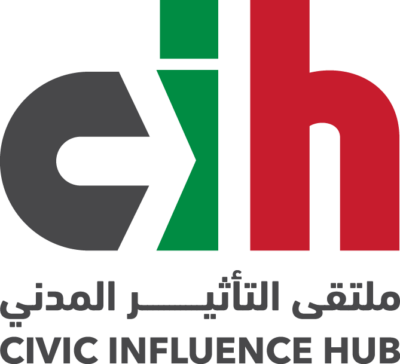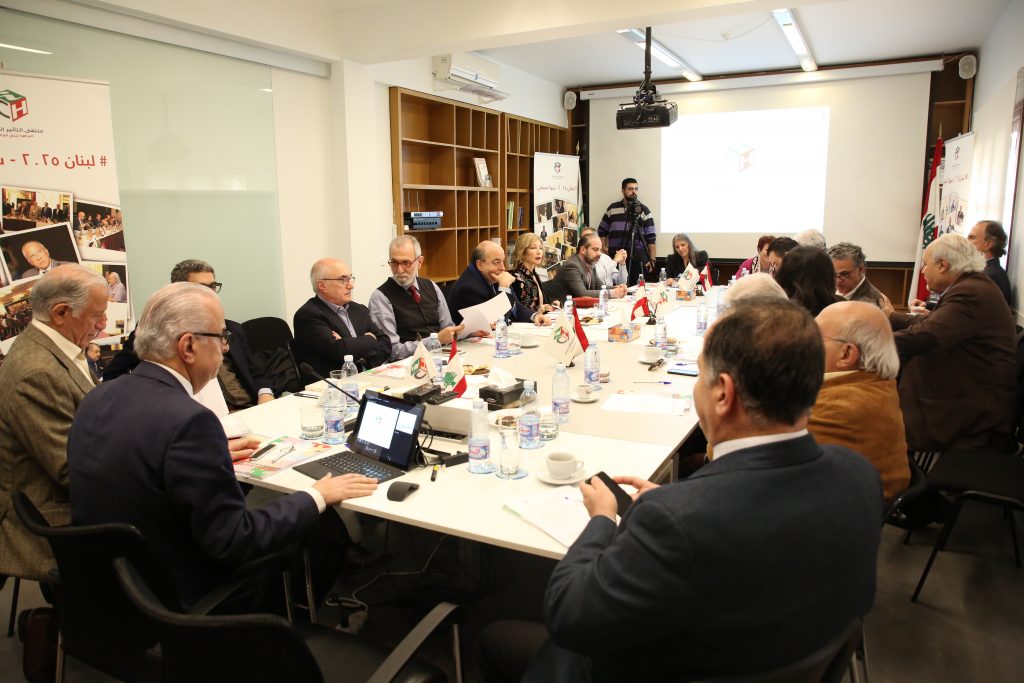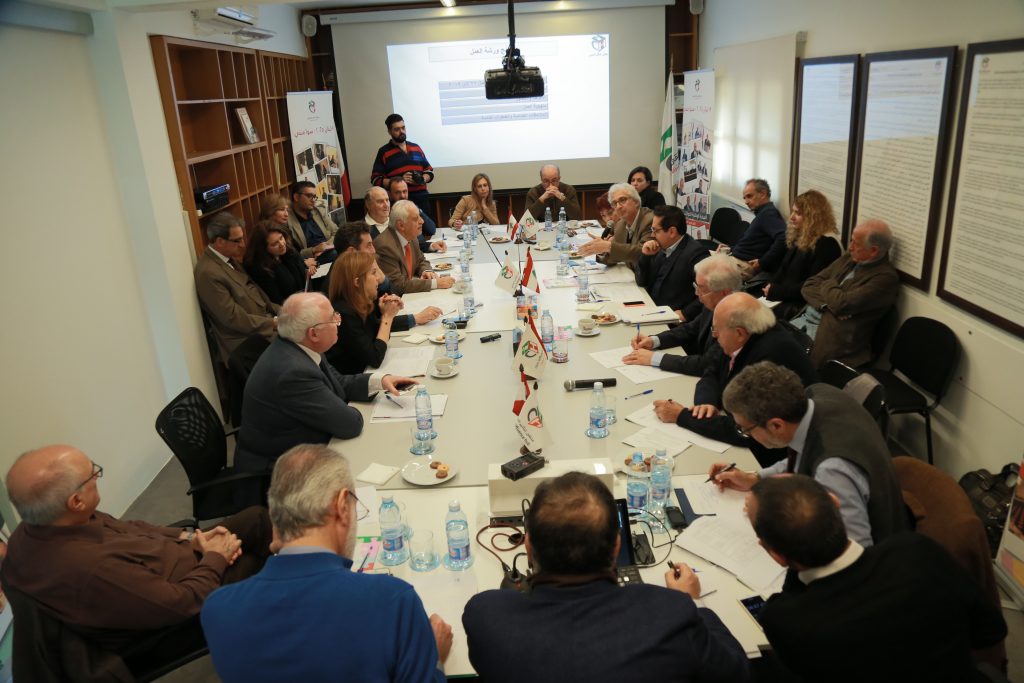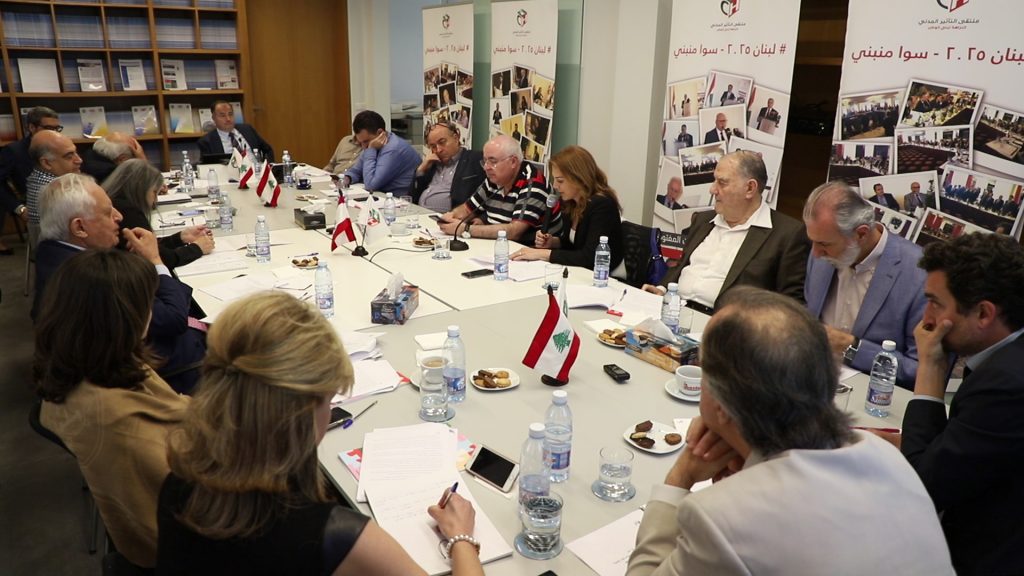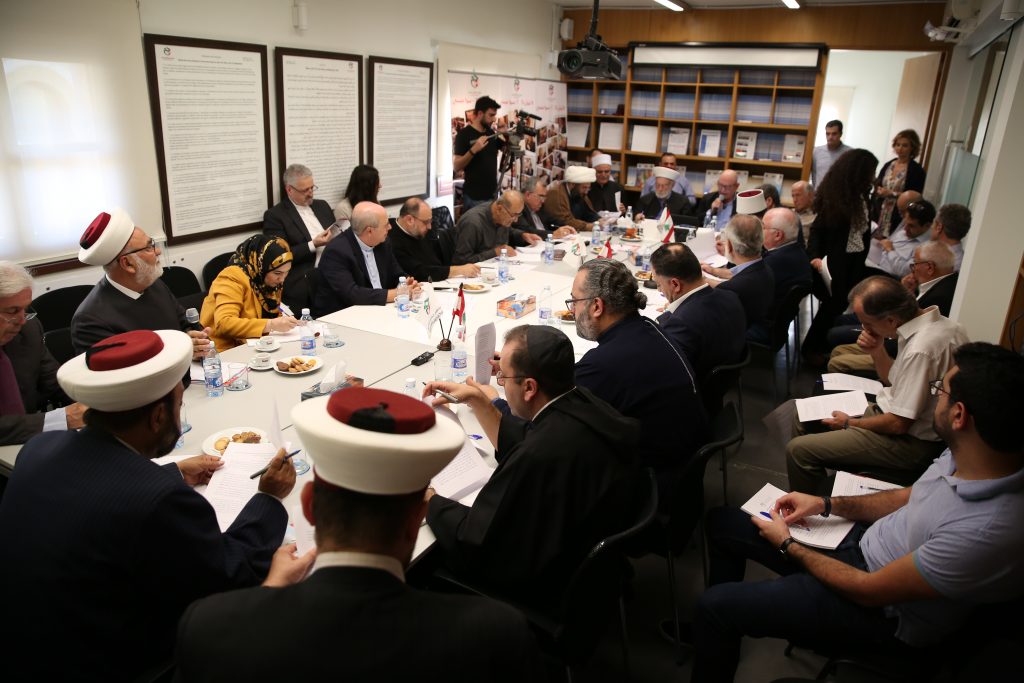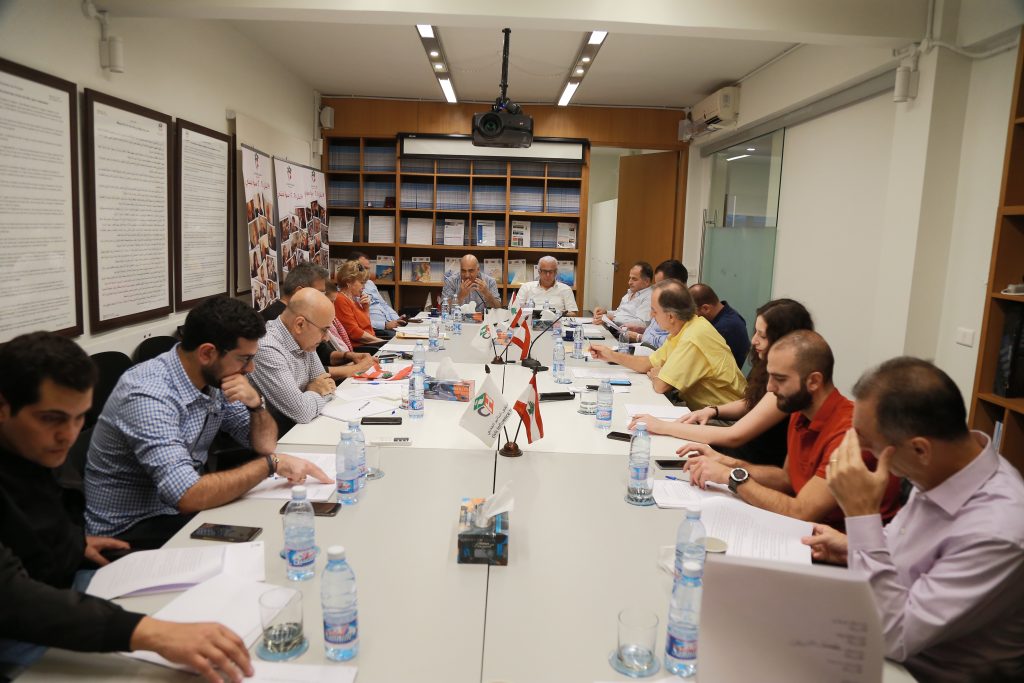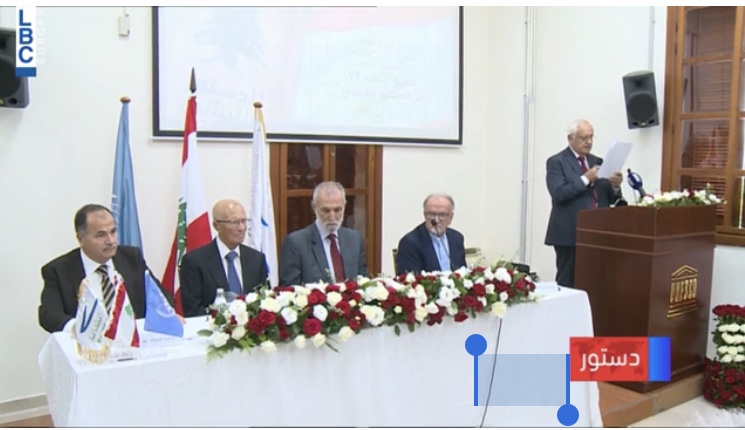Lebanon has been plagued by crises since its inception, as if it were its inevitable fate. Last of which is the current socio-economic crisis that threatens to open Pandora’s box. This is nothing but the result of the prevailing quota system, which is the produce of the sectarian system that generates crises
Only the civic state is the gateway to sustainable Lebanese peace, and the guarantor of the rights of individuals and components alike. The constitution brought reforms that pave the way for the establishment of the desired civic state and laid the foundations for a balanced and sustainable development that takes into account the needs of equal citizens. The Article 95 of the Lebanese constitution opened the door to reforming the political system, separating religion from the state in a manner that respects cultural specificities and guarantees public freedoms, foremost of which is freedom of belief
There is no doubt that Article 95 constitutes the most important reform, and the essence of the constitution, which came to end a fifteen-year long civil war, define the parameters of transition into the civic state, and put an end to sectarian crises and conflicts that exhausted its powers and opened the doors to external interventions at the expense of Lebanon’s sovereignty and the unity of its people. It should not be forgotten that Article 95 came in the context of a basket of basic reforms included in the constitution, such as the establishment of a Senate, the approval of administrative decentralization, all of which came within the framework of a “complete package(deal)”, ensuring that sectarian affiliation is bypassed and opens the way for a civil, economically active, and socially just state, that endows all its children with equal rights and duties
The Article 95 of the Lebanese constitution stipulates the following:
“The House of Representatives, elected on the basis of parity between Muslims and Christians, shall take the measures appropriate to abolish political sectarianism according to a phased plan and form a national committee headed by the President of the Republic that includes, in addition to the Speaker of Parliament and the Prime Minister, political, intellectual and social figures.
The mission of the committee is to study and suggest ways to abolish sectarianism, present it to Parliament and the ministers, and follow up on the implementation of the interim plan.
Thirty years have passed since the Constitution was approved, and most of the reforms it recommended have not yet seen the light. They remain trapped in the quota system, which is still an impenetrable bulwark today, despite its abject failure on the economic and political levels alike. The quota system was the main cause of corruption, depression, unemployment, and violation of national sovereignty.
Work Output
Based on the workshop findings, the Civic Influence Hub, assigned a research team of professors from the American University of Beirut and the Saint Joseph University, led by Dr. Makram Rabah, to work on the necessary studies to deal with sectarianism and its abolition in Lebanon.
Prepare the digital library (Annotated Bibliography), which includes everything published in contemporary history on sectarianism and Article 95: in the press, Lebanese universities, and cultural seminars. It was also provided with a digital information system capable of identifying the document and the author according to the research needs. To browse the digital library, click here
Based on the summaries of the open dialogues and discussion tables held by the CIH with the main stakeholders of civil society, especially civil bodies and organizations, unions of liberal professions, economic and commercial chambers, municipalities, and student unions in universities, the CIH launched in 2019 the “Abolition of Sectarianism” initiative in order to push forward the pressure mechanisms to start the implementation of Article 95.
The CIH held three round tables in which the discussions focused on the structural issues related to the constitution, the need to implement the Article 95, and establish a civic-temporal state in which the Lebanese are equal regardless of their confession or numbers.
⦁ First Workshop – March 22, 2019
The workshop was attended by number of activists and stakeholders. Deliberations focused on the importance of not tampering with the Constitution and the current emptying of constitutional institutions from their role, and on the tacit collusion between political forces to keep the situation unchanged to better service their interests.
Second Workshop – April 2, 2019
The workshop was attended by number of activists and stakeholders. The deliberations focused on the fact that the only solution to the miserable situation in Lebanon lies in the establishment of a civic-temporal state, and on the need not to separate between the abolition of sectarianism and the fight against corruption.
Third Workshop – May 3, 2019
The workshop was attended by number of activists and interested people.
The deliberations focused on the fact that the sectarian system is the authority’s tool for controlling the state and society, and that economic forces, not just sectarian forces, are now defining many political paths and decisions.
The CIH held two workshops, moderated by specialists, on points of convergence and disagreement on the following themes:
Article 95 and the Religion fervent – October 16, 2019
The workshop, which was attended by a large representative of clerics from most confessions, and from multi-disciplinary stakeholders, focused on the following questions:
- What does it religiously mean to be religious in Lebanon?
- Article 95: A guarantee of balance or a stick in the development wheel of the system?
- Is there a roadmap that the religious people would accept to start implementing Article 95 of the Lebanese Constitution?
Article 95 and the Economic and Social Impact – October 23, 2019
The workshop, which was held a few days after the outbreak of the October 17, 2019 revolution, examined:
- The impact of the abolition of sectarianism on the economic situation in terms of empowering skills, regardless of sectarian quotas.
- The role of various economic institutions (industry, craft production, agriculture, trade, tourism: cultural, religious and recreational), and their impact on the decision.
In order to create a new dynamic that goes along with the desired reform, and sets in mind a model for what the “National Committee for the Abolition of Sectarianism” should look like as stipulated in Article 95 of the Constitution, and within the framework of the activities related to initiative titled “Article 95 – Abolition of Sectarianism”, the CIH participated in the workshop organized by the “International Center for Human Sciences” under the title “Implementation of Article 95 of the Lebanese Constitution”, on 28/9/2019 at the center’s headquarters in Byblos. Each of the two board members of the CIH, Dr. Nizar Younis and Dr. Mounir Yehia, gave an intervention in the workshop covered by a news report on the Lebanese Broadcasting Corporation LBCI:
:The general perception of the National Committee for the Abolition of Sectarianism, its role and tasks
To complement the executive plan attached to the “Article 95 – Abolition of Sectarianism” initiative, the “ CIH ” seeks to form a civil body to work on implementing what the article stipulates, in order to create a new dynamic that goes along with the desired reform, and sets in mind a model for what the “National Abolition of Sectarianism” should look like as stipulated in the constitution.
Objective : The Committee aims to: Finding a living model of what the “National Committee” should look like as stipulated in Article 95, including: setting up the standards and work mechanisms to ensure the progress of its work, and the achievement of the desired goals; laying the foundations and defining the mechanisms for the abolition of political sectarianism, as a prelude to abolishing sectarianism; separating religion from the state; and building a state of citizenship; developing a road map to abolish sectarianism, according to the results achieved through the steps outlined above, specifically the draft premises and concepts, the digital library, workshops, and legal mechanisms.
Mission : The Committee shall set a road map that details the implementation stages at all levels
(political, economic, administrative, social, educational), and according to a timetable that clearly outlines responsibilities and requirements.
Members: The Committee is composed of reputed political, economic, academic and cultural figures, its members shall have the following characteristics:
- High moral decency for members so that their present is not ashamed of their past
- Gender balance in the organs between men and women
- Age balance, so that the difference in the age of the members is in the service of the Committee and its goals
- Ensuring a wide representation of the various social and professional sectors
- Ensuring the representation of Lebanon in its geographical and regional diversity
- The willingness of the members to commit in terms of the time and effort required
